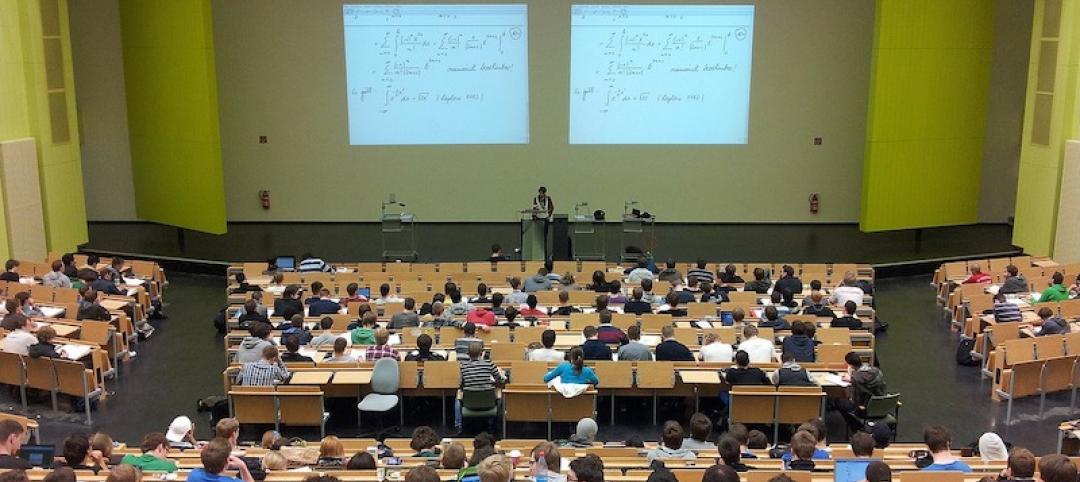The chief executive officer of the Associated General Contractors of America, Stephen E. Sandherr, issued the following statement in reaction to the passage in the House of Representatives today of the Paycheck Protection Program Flexibility Act of 2020:
“Members of the House appreciate that one of the best ways to protect the economy from further harm is to make needed improvements to the federal Paycheck Protection Program. While the loans have helped prevent countless construction layoffs during the past several weeks, their benefits have been limited by several problems that have become apparent since the original program was crafted. These problems include the fact the loans are only supposed to cover an eight-week period, set an unrealistic formula of payroll versus other legitimate expenses and are supposed to mature in two years.
“The House-passed measure corrects many of the problems with the original Paycheck Protection Program by extending the coverage period to 24 weeks, revising the eligibility formula to 60 percent payroll costs and 40 percent non-payroll, extending the maturity period for the loans from two years to five, and allowing loan recipients to defer payroll taxes through the end of 2020. Combined, these improvements will save construction jobs and provide greater relief for many construction firms struggling to survive the COVID-19 pandemic and related economic lockdowns.
“Moving forward, we urge the Senate to quickly pass this vital economic relief measure and the Trump administration to rapidly sign it into law. Any additional delay in improving the Paycheck Protection Program will result in needless new job losses and additional financial hardships for many small, family-owned construction firms.”
Related Stories
Market Data | Jun 30, 2020
329 metro areas added construction jobs in May
Seattle-Bellevue-Everett, Wash. added the most construction jobs (28,600, 44%) in May.
Market Data | Jun 29, 2020
6 must reads for the AEC industry today: June 29, 2020
HQ tower features gardens on every floor and the head of Hilton talks about how his business will survive.
Market Data | Jun 26, 2020
5 must reads for the AEC industry today: June 26, 2020
Restoration of 1930s El Paso hotel completes and Arc offers tools, analytics for safe workplace re-entry.
Market Data | Jun 25, 2020
Commercial Construction Index drops amid Coronavirus pandemic, but contractors poised for near-term recovery
Contractors quickly prioritized worker health and safety, and 1 in 3 plan to hire more workers in the next 6 months.
Market Data | Jun 25, 2020
7 must reads for the AEC industry today: June 25, 2020
CDC to build the most advanced high containment laboratory in the country and architecture billings downward trajectory moderates.
Market Data | Jun 24, 2020
Architecture billings downward trajectory moderates
AIA’s Architecture Billings Index (ABI) score for May was 32.0 compared to 29.5 in April, but still represents a significant decrease in services provided by U.S. architecture firms.
Market Data | Jun 24, 2020
8 must reads for the AEC industry today: June 24, 2020
San Francisco's apartment market goes in reverse and WATG designs a solution for isolating without sacrificing social connectivity.
Market Data | Jun 23, 2020
National survey reveals pandemic's impact on college students' mental health, remote learning, families' income and more
Of 2,500 student respondents, 75% feel more anxious or stressed, 57% said they lost their summer jobs and 90% want to return to campus in the fall.
Market Data | Jun 23, 2020
7 must reads for the AEC industry today: June 23, 2020
Gyms are going bacnkrupt and leaving gaps in shopping centers and how hotels are trying to keep guests and employees safe.
Market Data | Jun 22, 2020
New House infrastructure package will provide needed investments in aging infrastructure, support economic recovery, and create jobs
The Moving Forward Act’s proposed $1.5 trillion in new investments will improve range of public infrastructure, creating needed demand for construction while making the economy more efficient.

















